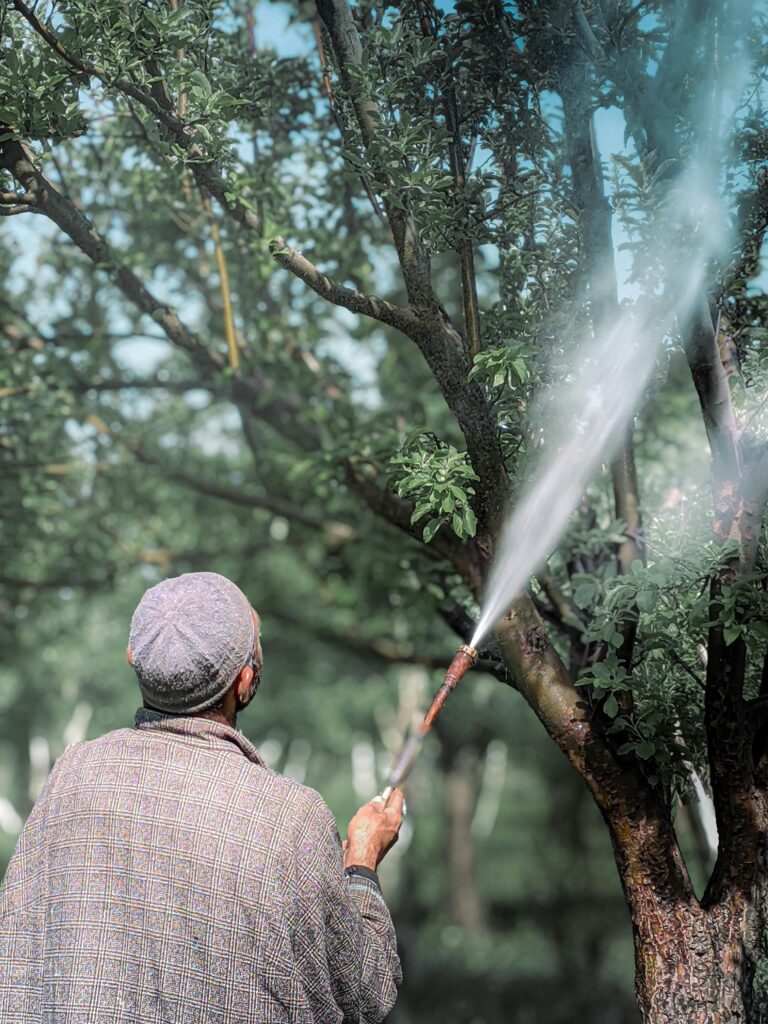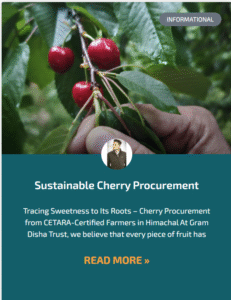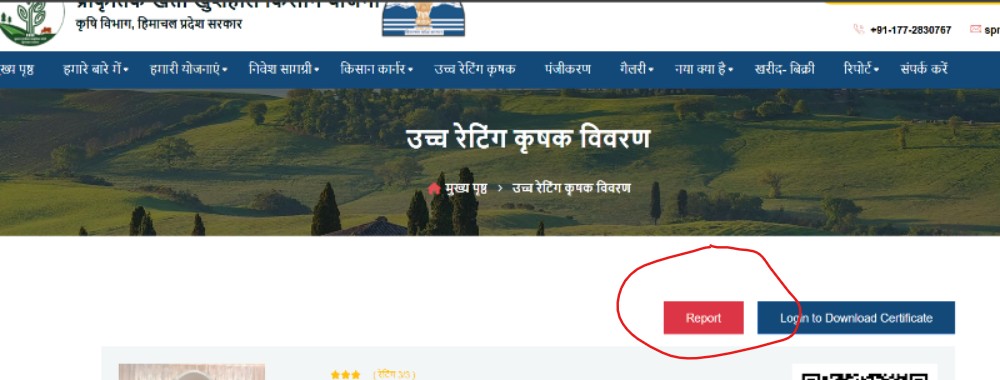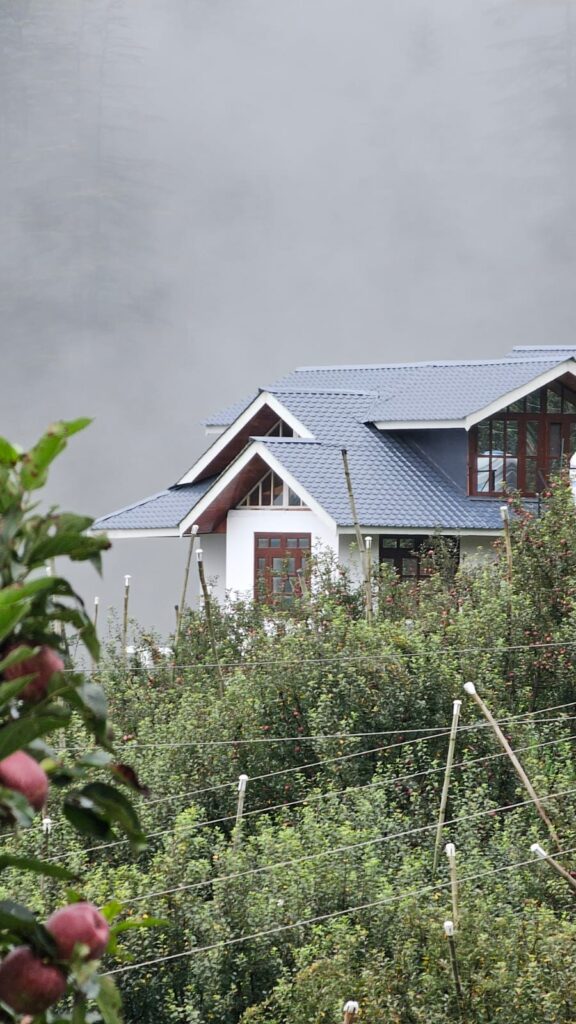
When Good Apples Face Hidden Challenges: A Story of Trust and Transparency
On 22nd August 2025, a fresh lot of apples arrived at our facility. They came from two of our partner farmers, both of whom had long been associated with natural farming. The apples were beautiful to look at shiny skins, perfect grading, neatly packed boxes that spoke of care, and a taste that instantly reminded us of crisp mountain air. At that moment, everything seemed right. It felt like another successful step in our journey to bring honest, chemical-free produce directly to our consumers.
Yet farming has a way of humbling us. No matter how hard farmers work, or how carefully we monitor, there are truths that only reveal themselves later. For us, that truth often comes through something invisible to the eye: pesticide residue testing. We endeavor to support newer farmers every year with the consumers in keeping with the demand and growing market.
Readers may recall that JaivikHaat undertakes pesticide residue testing in accredited laboratries in Delhi and other other cities (through B2B partners). We had shared a case with the supply of Fresh Cherries from a 3-star farmer in a previous article.
As many of you know, at Jaivik Haat, lot of apples undergoes random testing in government-approved labs to ensure that no harmful chemical residues are present. But here lies the first dilemma fresh produce cannot simply wait.
Apples are living fruits; once harvested, their quality begins to decline. They need to move quickly from the orchard to the consumer’s table. Holding them in cold storage for long stretches while waiting for test results is neither practical nor fair.
Farmers need to be paid as soon as their harvest arrives, and consumers deserve apples at their freshest. So, the process usually works in parallel: apples are sent for testing, while distribution begins based on trust and past assurance, and the results arrive about a week later and sometime the labs take longer to confirm the draft results.
This time, when the reports from NIFTEM laboratories reached us, the news was difficult to absorb. Out of the many samples tested, apples from two farmers showed residues above the permissible Maximum Residue Limit (MRL).
The test was done for 63 agro-chemicals which are common for Apple Cultivation. We undertook the tests against the strict Jaivik Bharat MRL limits ( which is 5% of MRL ). Out of 63 chemicals of the lot no residue was detected for 57 chemicals however traces were detected for 6 agrochemicals. While the residue is not very high and in cases it is slightly higher than JaivikBharat standard, nonetheless, for the effort and quality we put in it is a sad day for us. Despite all efforts this has occured.
For farmers who had consistently claimed to be practising natural, chemical-free farming, this was as distressing for them as it was for us.
The residues detected were of fungicides chemicals typically used in conventional farming to control fungal infections like apple scab, powdery mildew, and storage rots that spread quickly during wet, humid seasons. These substances are meant to protect crops, especially when rain is heavy and sunlight is scarce, but they have no place in produce that is meant to be sold as natural and pesticide-free.
When we went back to the farmers with the reports, both of them were genuinely distressed. They explained their situation honestly. The reasoning we have been able to determine is that this year’s unusual rains had created widespread fungal infections across the region. Many neighboring farmers, who still practice conventional methods, had sprayed their orchards extensively with chemicals. Even though our partner farmers avoided such measures, they believed contamination may have reached their farms through water runoff or even through drift in the air. One farmer shared an additional hardship his packaging and grading shed had been destroyed in a landslide during the monsoon. Forced by circumstances, he had to rely on machinery belonging to a conventional farmer. He admitted he was hesitant, but with no other option available, he used it. And in retrospect, that decision may have introduced residues onto his produce inadvertently.
For us, the most important thing to remember was that these farmers did not set out to deceive. They were victims of their environment, of the interconnectedness of farming communities, and of the unpredictable hand of nature. Still, as an organisation that has promised its consumers nothing less than pesticide-free produce, we had to act. It is highly likely that the lots we marketed would not have had any residue for the consumers, however as a transparent social enterprise – we have decided to act nonetheless. The first step is to honestly address the situation for all concerned – consumers, farmers and the Government Department handing the CETARA-NF system. The CETARA-NF system has a mechanism in public domain where anyone can provide feedback about the farmers.
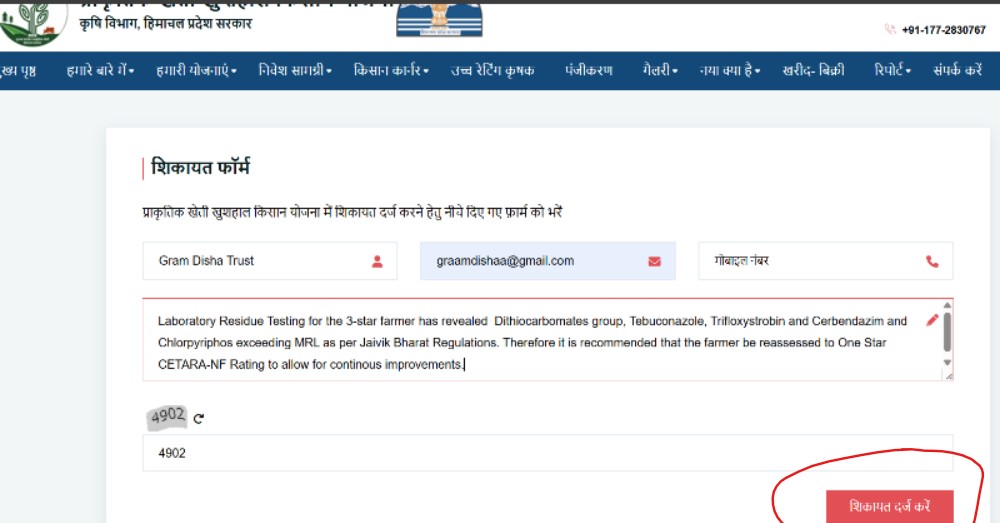
The first step was traceability. We traced every box from the affected lots, contacted each buyer directly, and explained the situation. Then transparently we apologised for the lapse and offered three choices either a complete refund, replacement with a fresh, residue-free lot, or a discount on their next order. The same process was undertaken with our B2B marketing partners, to allow them to address the same with their consumers across India.
It was not easy making these calls. Some consumers were understandably upset, while others appreciated the honesty and supported the way we handled it. There were criticisms too, but we believe criticism is a form of care it pushes us to stay true to our principles.
At the same time, we also sat down with the farmers. Simply dropping them from our network would have been the easiest option, but not the right one. Our philosophy has always been to support farmers in becoming better, not punish them into isolation. We agreed to reassess their CETARA star rating from 3-Star to 1-Star, a measure that signals to consumers that their produce is under scrutiny until they can produce with sans agrochemical again.
The farmers accepted this with humility, and we promised to help them find solutions for the future, whether that means building dedicated grading infrastructure or working with neighboring communities to create chemical-free zones.
This incident also highlights something important for our consumers. When you buy an apple labelled natural or chemical-free, it is the product of trust, assurance, and past records but the final word always comes from testing. Even farmers themselves may not know their crops have been exposed until those lab reports arrive. Farming, after all, is not a sealed laboratory experiment. Each lab test is an expensive undertaking, which small farmers can ill-afford to undertake. At our social enterprise JaivikHaat, we split the costs between our B2B partners, farmers and ourselves to keep the costs affordable. Also due to this we are limited to undertake Randomised residue testing with full knowledge of the farmers we source from. They are confident and ready for such a situation, however unlikely it is.
It is part of a living, breathing ecosystem where water, air, soil, and community practices are all interlinked. An all-natural farmer still depends, in some ways, on the goodwill of the ecosystem around him. And sometimes, despite the best intentions, that goodwill is broken by circumstances beyond his control.
It is also a reminder that we, too, have limitations. We do everything possible to procure only from farmers with strong natural assurances, but the truth is that issues like these can only be confirmed after rigorous testing. By the time results come in, produce has already begun its journey to consumers. That is why transparency becomes even more important because while we cannot prevent every challenge, we can promise to share the truth and act on it swiftly.
For us, this episode is not just about apples with residues. It is about what kind of food system we want to build. A system where consumers are not kept in the dark, where farmers are guided rather than abandoned, and where honesty matters more than perfection. We know such incidents are not what anyone wants but they are also part of the reality of working with nature. And when they happen, we choose to confront them openly, take responsibility, and prepare better for the future.
Consumers Perspectives
There is an important perspective to note as consumers here. The conventional market does not undertake strict JaivikBharat MRL testing as we undertake. There are also many publically available reports on the issue of residues in the produce available in markets in general. We believe that even in this situation our product and supplies are much better placed than the conventional markets. We request all to consider such a situation in its entirety and remain in support fo consumers and farmers going forward.
Here is one such important report by FSSAI towards the same.
This does not take away the fact, that we shall have to find ways to improve our process, but also find methods to continue supporting the farmers towards this transformation. Only if there is participatory support from the consumers, policy makers and all stakeholders is this Food Systems transformation possible. To this end, we remain open to suggestions and recommendations on possible improvements.
Every apple has a story, and sometimes that story includes difficult lessons. By staying with us through this journey, you are not only enjoying safe and pure produce, you are also becoming part of a community that values transparency, supports farmers through challenges, and believes that real change is possible one apple at a time.

